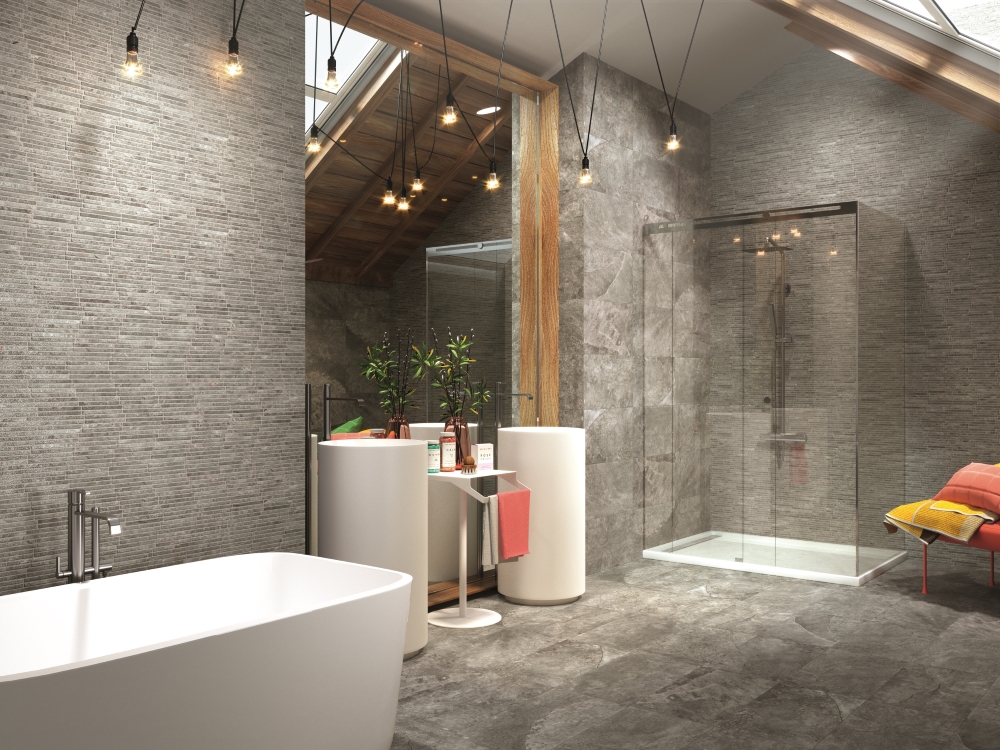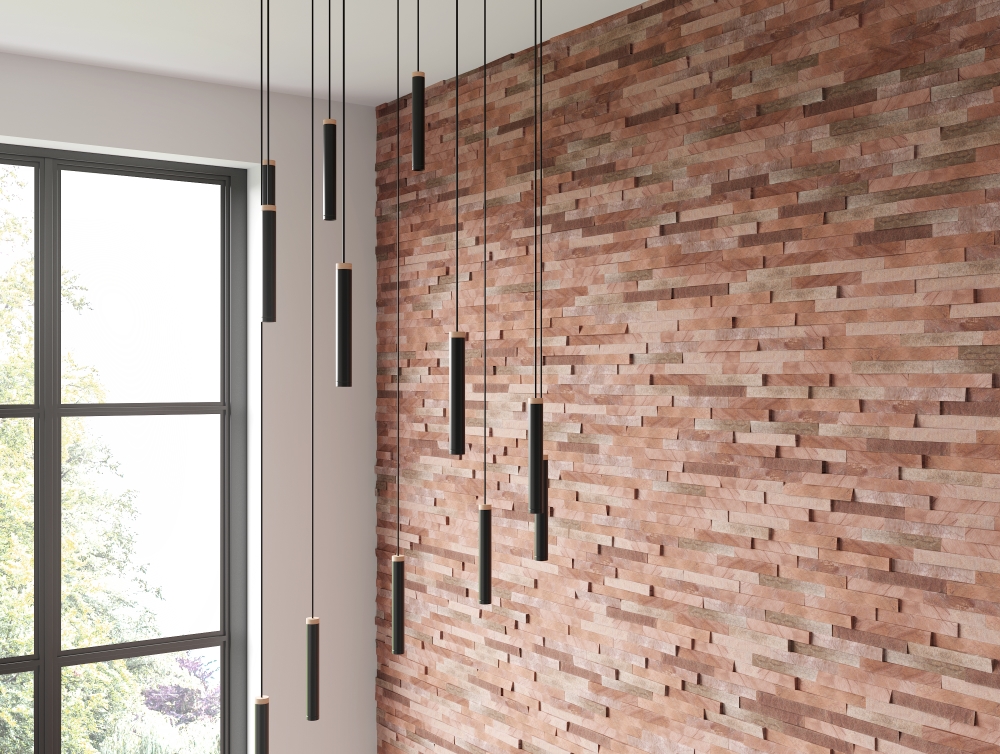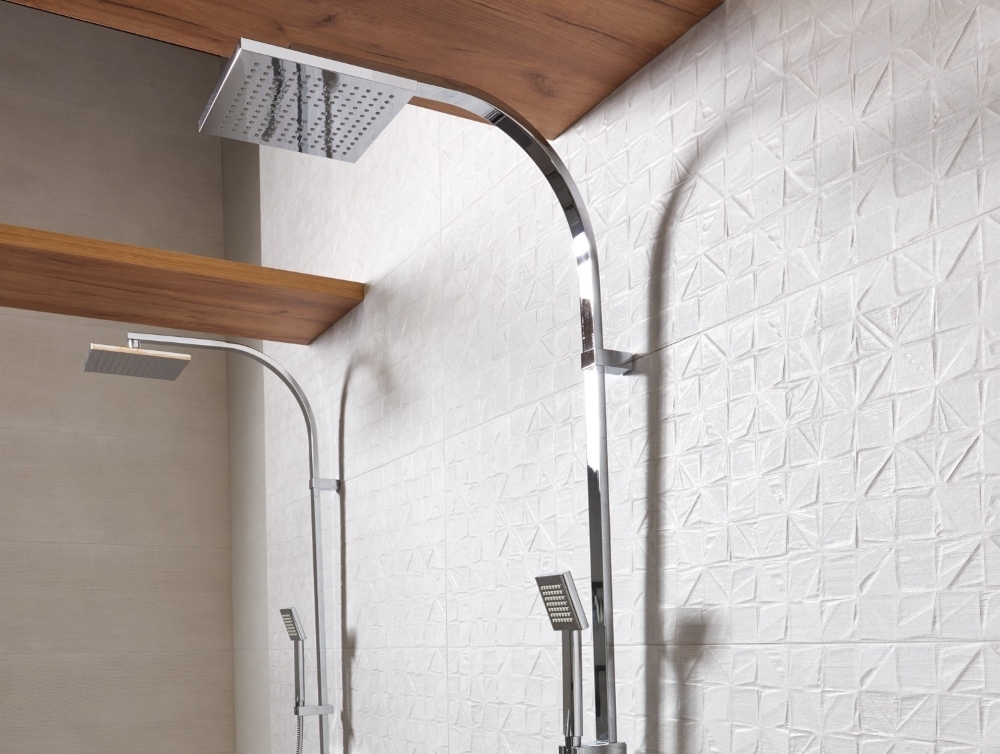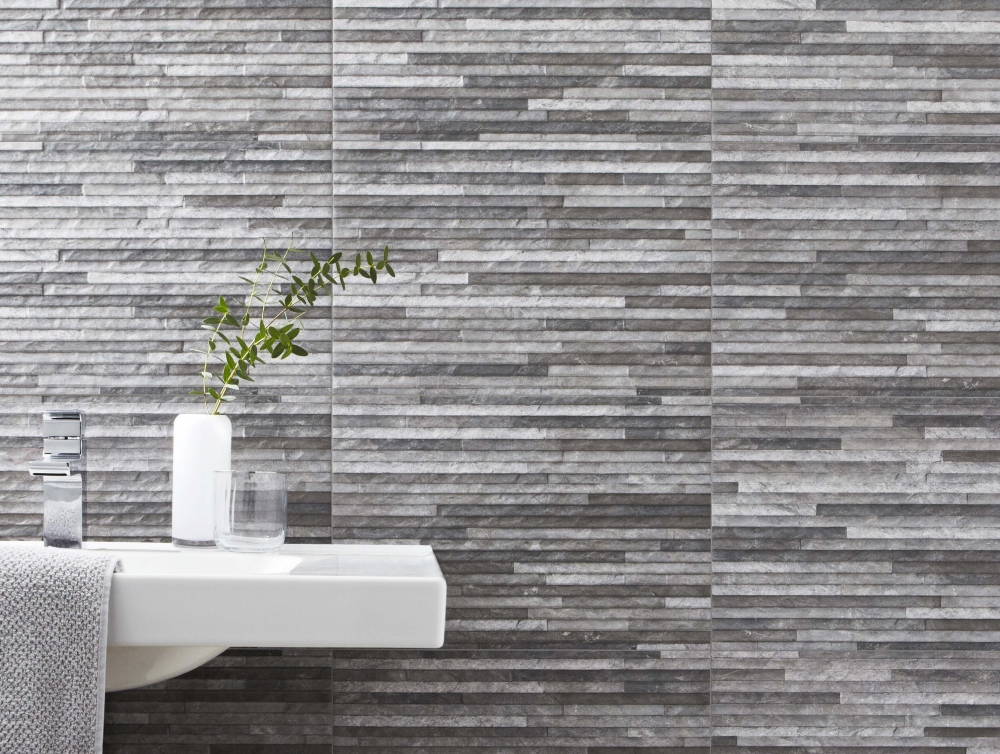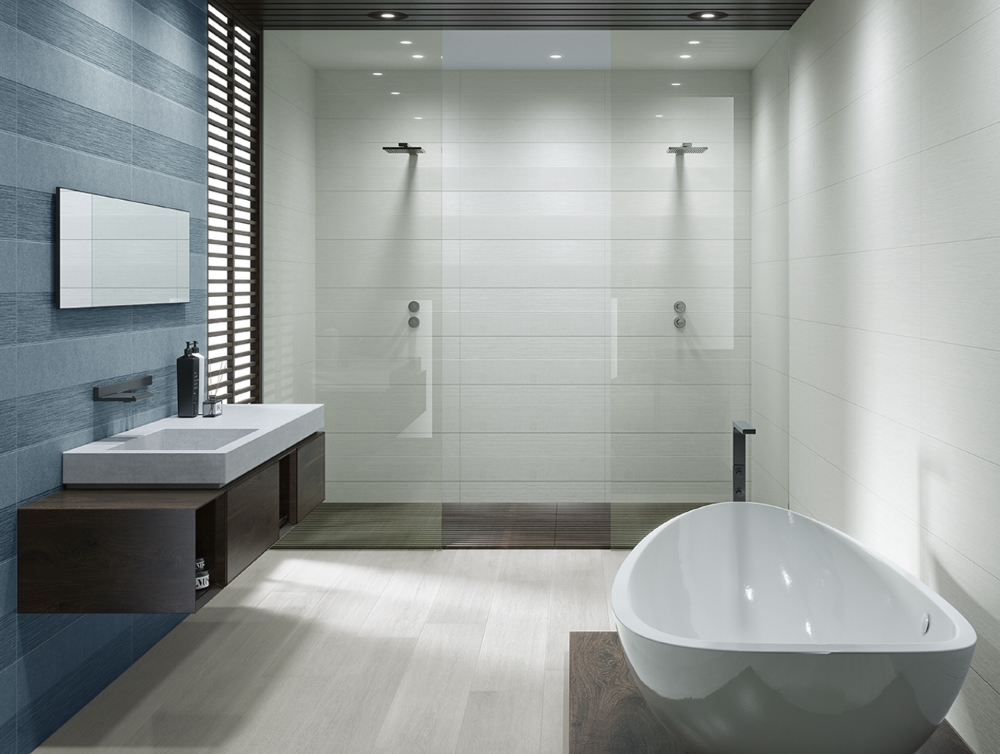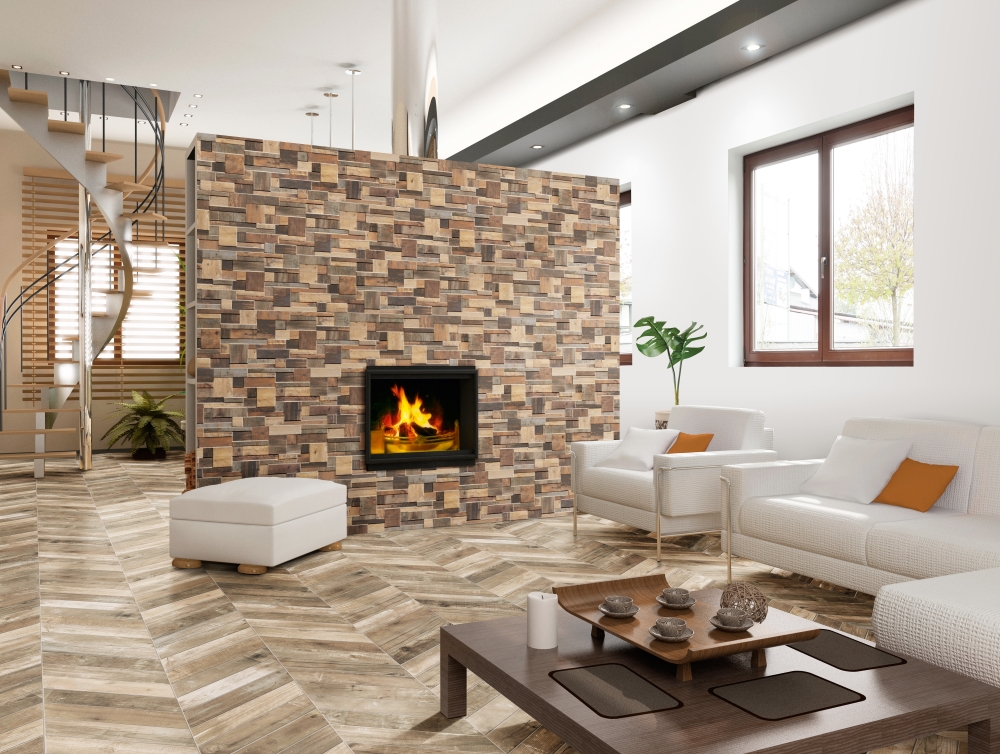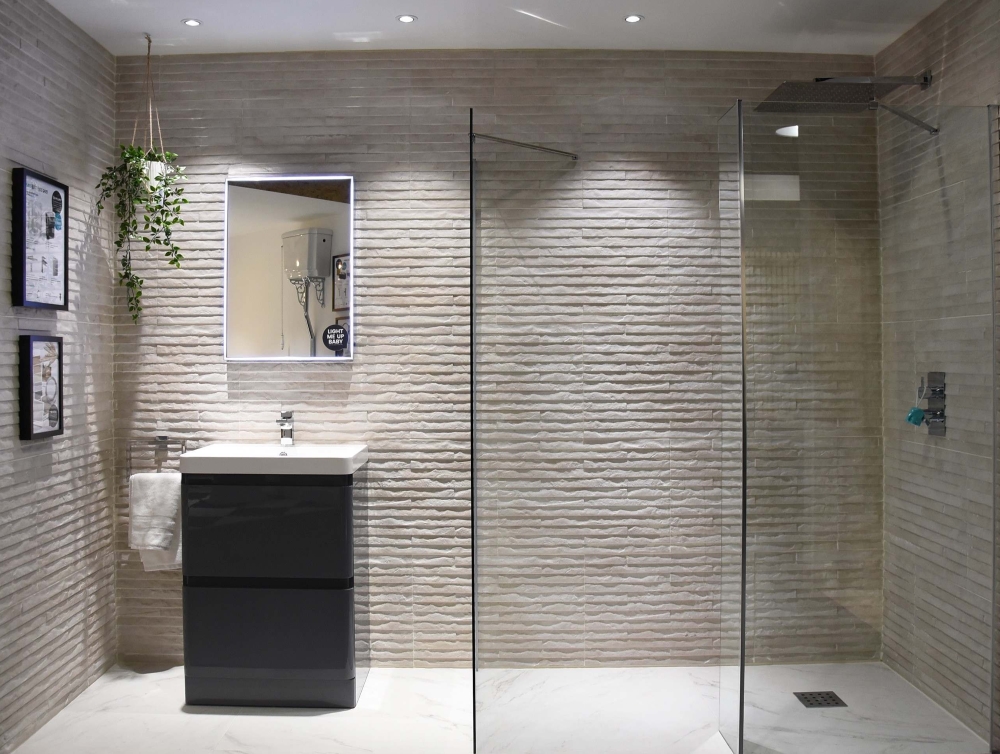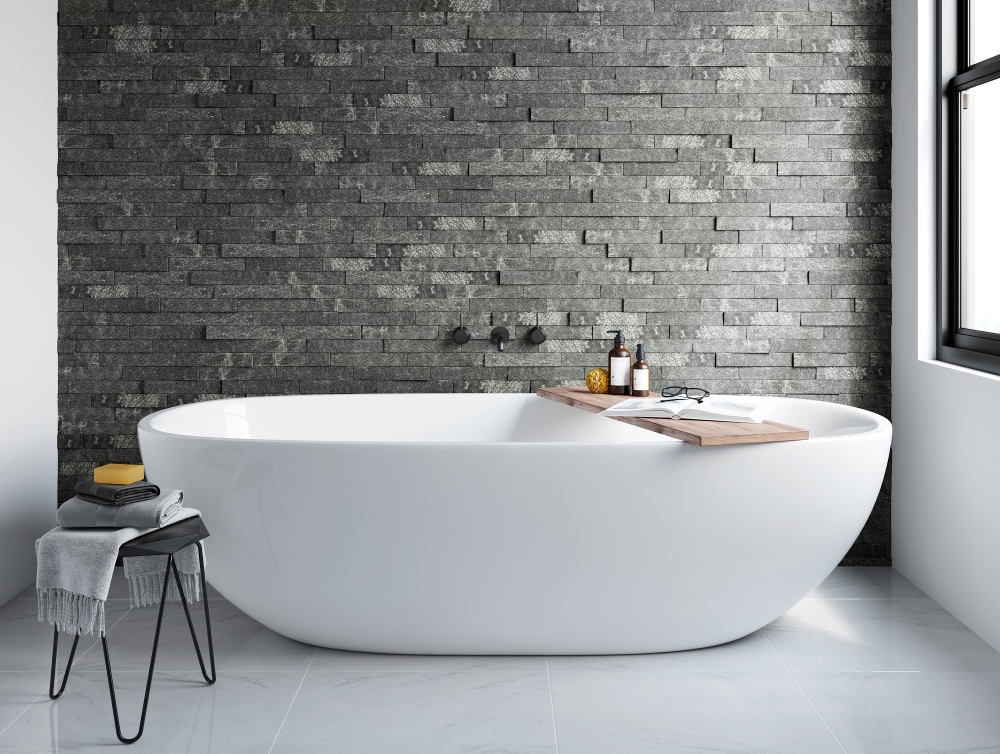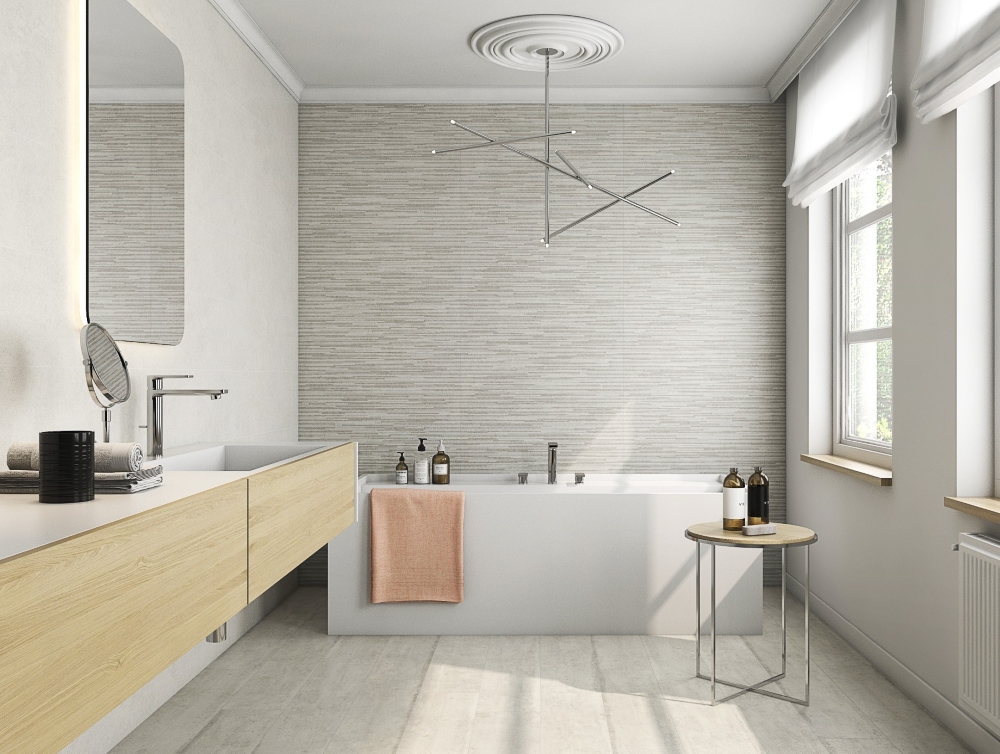If you’re interested in interior design and indeed tiles and the tiling thereof (as you’re on this website we’re guessing you are) then you might have heard the phrase structured tiles being bandied about. “But what exactly are structured tiles and what are they for?” we hear you ask. Well, read on as were about to take a closer look at the things right here…
Are structured tiles something that are used in the construction of buildings?
Not as such. The ‘structured’ part of their name refers not to the structural side of buildings but to the way the tiles themselves are constructed. Regular, flat-surfaced porcelain or ceramic tiles are generally made up of clay that has been subjected to thousands of psi of pressure in a press, cut to a shape, coated in a glaze, and then fired in a kiln at extremely high temperatures.
Structured tiles are produced in much the same way except that different surface textures are formed within the raw material by the press ahead of firing to create undulating surface designs with raised and sunken parts (depending on how the press has been configured to produce a particular design).
So, structured tiles are those tiles with raised and textured surfaces, like split-face mosaics yeah?
Again, the answer to this one is ‘sort of’. Split-Face mosaics are often made from individual pieces and of natural stone (usually slate or marble) that vary in shape, thickness and thickness and that are cut to size and fixed to a mesh backing.
You might find a structured tile that looks exactly the same, the difference is however that the structured tile is a singular, ‘solid state’ tile in which the randomised appearance of the various pieces is actually ‘baked in’ to one singular tile (as opposed to the various individual pieces that make up Split-Face tiles).
Are structured tiles made from ceramic or porcelain?
As the method for producing both ceramic and porcelain tiles is pretty much the same structured tiles can be constructed from both ceramic and porcelain. The Split-Face type of tile mentioned above is technically a structured tile too, so you can also say that structured tiles are made from natural stone (as Split-Face tiles are often marble, slate or other natural material).
Natural stone tiles of any sort generally require sealing post-installation (more on this later), whereas ceramic and porcelain are more versatile in their applications and require much less maintenance.
Are structured tiles as durable as ‘standard’ flat-surfaced tiles?
Yes. Porcelain is very durable indeed, hence why floor tiles are mostly made from this material, That’s not to say that ceramic structured tiles cannot be used on floors or are any less durable – it all depends on the substrate material a particular tile is made from and the glaze it’s coated with. Ceramic tiles usually consist of a glazed or unglazed body of crystalline or partly crystalline structure, made from inorganic non-metallic materials and formed by the action of heat.
Porcelain is a glazed or unglazed vitreous ceramic white-ware made by heating raw materials, often including clay in the form of kaolin, to high temperatures in a kiln. Porcelain tiles are dense, usually impervious, fine-grained, smooth with a sharply formed face, and very hardwearing. Full-bodied porcelain (sometimes called fully vitrified porcelain) is incredibly durable as it is made from a single layer of porcelain, for which the pigmentation used to create the face pattern is present through the full depth of the tile. This type of tile is less susceptible to chips and fading.
Can structured tiles be used on floors or are they only for walls?
Due to the decorative element of structured tiles – we’re thinking of all those random shapes and undulating surface designs in particular – they’re more commonly used as wall tiles. There are structured tiles available for floor use however, but these tend to have less obtrusive (read: sticky outy bits) than structured wall tiles because if they had then they’d be quite difficult to walk on without tripping over!
Porcelain structured tiles are more durable than their ceramic counterparts and are therefore generally used as floor tiles where they’re subject to more wear and tear. Again. It all depends on the type of substrate material the tile is constructed from and the glaze used though, so you could get a ceramic structured tile that’s been designed with floor use in mind.
How do you care for structured tiles?
Exactly the same as you would for ceramic and porcelain tiles. Some porcelain tiles – especially those made from micro-porous porcelain – do require post-installation sealing with an impregnating sealer such as Fila MP90. Matt porcelain and ceramic tiles generally do not require this treatment, but again, it all depends on the type of material the tiles are made from. Always check the manufacturers’ advice before installing and sealing.
Structured tiles constructed from natural stone will need sealing after they’ve been fitted. This is definitely the case with Split-Face tiles as these are mostly made from natural materials like marble, travertine, and granite. We recommend using Fila StonePlus Sealer for this task. When it comes to cleaning structured tiles, just follow the same procedures as you would for that specific type of ‘regular’ tile.
Can structured tiles be exposed to direct water (like in a shower cubicle)?
Single piece structured tiles can be exposed to direct water without a problem however, we wouldn’t recommend installing Split-Face Mosaics in any location that they’re constantly subjected to the wet stuff. This is because split-face style stiles are not grouted meaning that water can get in behind them and cause them to pop off the wall.
Even when installing solid ceramic or porcelain tiles in a shower cubicle or wetroom it is advisable to sufficiently waterproof the substrate the tiles are being fixed to. We recommend using cement board such as HardieBacker Board or if you’re creating a shower space, making sure everything is watertight with Mapei Shower Waterproofing Kit.
Are structured tiles on-trend?
You betcha. In recent years the whole structured tiles thing has blown up massively and interior designers and DIYers alike are falling over themselves to incorporate these texture tiles into their design schemes. One particular trend that shows no sign of stopping is the creation of a feature wall within a shower cubicle – take a look at this video to see how our very own Craig Phillips did just that in his own home.
Structured tiles are incredibly aesthetically versatile too, meaning that they can be deployed to great effect to create visual intrigue as part of pared-back industrial-inspired design schemes, or teamed with similarly coloured plain tiles to produce a zoning effect within a roomscape.
Are structured tiles expensive?
Not when you buy them from Tile Mountain! You can usually expect decor tiles to have a slightly higher price tag than their plain counterparts but, as is the way of Tile Mountain, we’ve somehow managed to offer these easy on the eye tiles at a very competitive price point. Obviously, larger format structured tiles are more expensive than smaller ones, and ceramic structured tiles are, in general, cheaper than porcelain ones, but our prices are pretty low across the board.
If you’re looking for large format structured wall tiles then check out our Volta Lamas Decor Matt Wall Tiles – available at just £15.99 per sqm. For a similar vibe but in a smaller size you could always point your browser towards our ever popular Brix Anthracite Wall Tiles – yours for just £14.99 per sqm. Those who’re partial to a plank-like tile no and then could do worse than take a look at our Chic range, whilst if a cubist design is more your style then Vita Grey Cube Mix Decor could be right up your street. Finally, if you want something a little on the quirky side then have a quick peek at our Coda and Pallet ranges.
Dean heads up the content team here at Tile Mountain, commissioning, editing and sometimes even writing some of the incredibly useful and entertaining content we bring to you on a regular basis. With a background in consumer journalism and a raft of content marketing experience gained from working with huge brands spanning mobile tech and automotive, right through to professional sports and lifestyle sectors, he knows a thing or two about creating content that people love to engage with. Dean also holds the mantle of being our resident grammar pedant, but when he’s not getting angry about dangling participles he spends his spare time going to gigs, watching his beloved Stoke City FC, and adding to his collection of deadstock adidas trainers.

